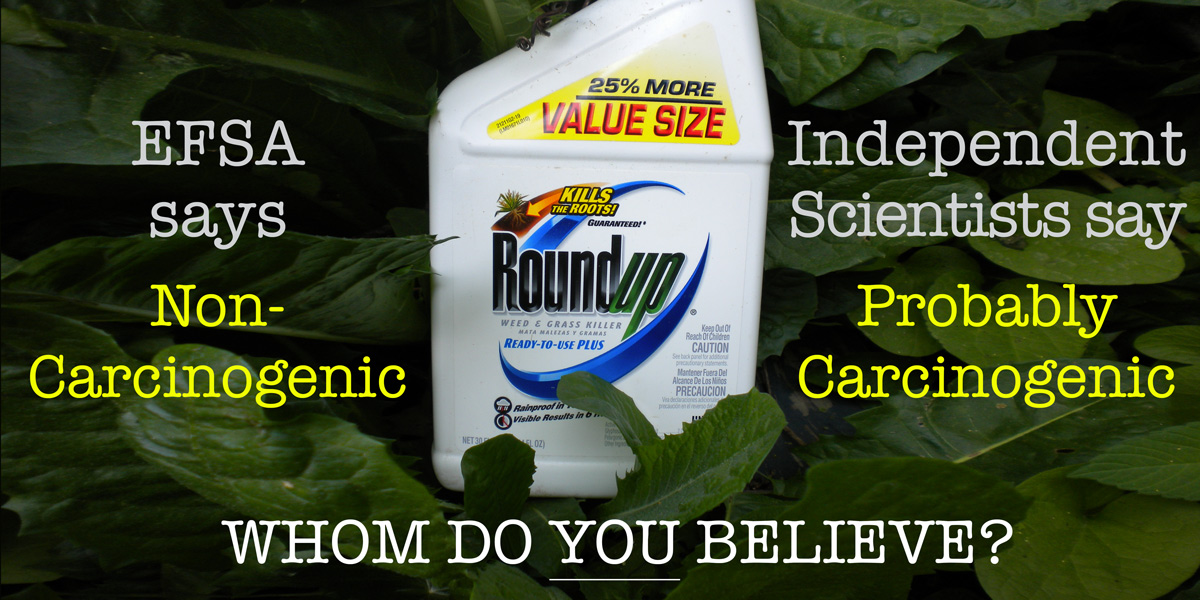
Over 90 international scientists call German government report underpinning EFSA decision “not credible”
In November, the European Food Safety Authority (EFSA) concluded that glyphosate is “unlikely to pose a carcinogenic hazard to humans”.
The EFSA decision, based on the Renewal Assessment Report provided by the German federal risk assessment institute BfR, ran counter to the finding earlier this year by the International Agency for Research on Cancer (IARC), the cancer arm of the World Health Organization, that glyphosate is a probable human carcinogen. The IARC review linked glyphosate to dose-related increases in malignant tumours at multiple anatomical sites in experimental animals and to an increased incidence of non-Hodgkin lymphoma in exposed humans.
In a new development, a group of over 90 independent scientists has written an open letter to the European Health and Food Safety Commissioner, Vytenis Andriukaitis, strongly challenging EFSA’s decision and the BfR report that it was based on.
The scientists, who come from countries as diverse as the US, Germany, Kuwait, Japan, and Korea, say that they have reviewed these two differing decisions on the human carcinogenicity of glyphosate and conclude that the IARC decision is “by far the more credible”, whereas the BfR decision is “not credible”.
The scientists state that the IARC decision “was reached relying on open and transparent procedures by independent scientists who completed thorough conflict-of-interest statements and were not affiliated or financially supported in any way by the chemical manufacturing industry. It is fully referenced and depends entirely on reports published in the open, peer-reviewed biomedical literature.
“It is part of a long tradition of deeply researched and highly credible reports on the carcinogenicity of hundreds of chemicals issued over the past four decades by IARC and used today by international agencies and regulatory bodies around the world as a basis for risk assessment, regulation and public health policy.
“In contrast, the BfR decision is not credible because it is not supported by the evidence and it was not reached in an open and transparent manner.”
The scientists, who go on to add a detailed explanation of their findings, urge Commissioner Andriukaitis to “disregard the flawed EFSA finding on glyphosate” in policy-making for Europe.
They conclude, “Due to the potential public health implications of this extensively used pesticide it is essential that all scientific evidence be freely available, reviewed openly in an objective manner, and that financial support, conflicts of interest and affiliations of authors be fully disclosed. Many aspects of the evaluation conducted by the BfR and EFSA do not meet this fundamental objective criteria and raise significant questions of validity.”
Claire Robinson of GMWatch commented, “Over the past decades, the alliance of regulators with secret industry-sponsored science has increasingly diverged from independent academic science published openly in peer-reviewed journals. While the former maintains that glyphosate and a host of other chemicals are safe, a large and growing number of peer-reviewed scientific studies say the opposite.
“We suspect that the industry data, and the regulatory interpretations of that data, that are used to justify approval of many of these chemicals would not survive open scrutiny in the scientific community. They are sustained in the marketplace only by secrecy and lack of transparency.
“We urge the Commission to accept the findings of IARC and the view of this large group of eminent scientists. The Commission should move to phase out glyphosate herbicides and require member states to systematically implement the Sustainable Use of Pesticides directive, which says that member states should make plans to replace pesticides with sustainable and less-toxic methods of pest management.”









